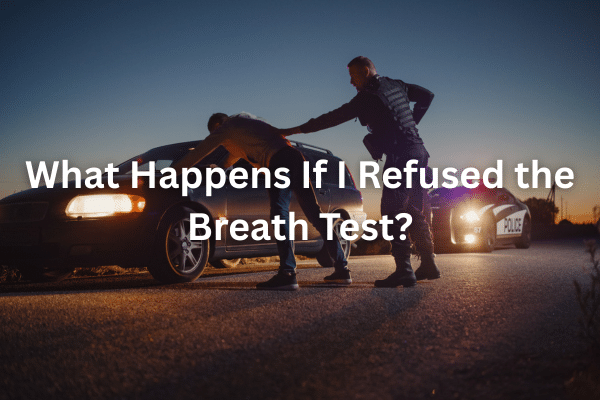

You’re pulled over, the lights flash, and the officer asks for a breath test. In the swirl of nerves and second-guessing, you say “no.” Now what? In New York, refusing the chemical test (the official breath, blood, or urine test after arrest) triggers a separate DMV process with its own timeline and penalties—independent of your criminal DWI case. Here’s a clear, real-world walkthrough of what happens next and how a defense lawyer can help.
After an arrest where you refuse the chemical test, the court at your arraignment will temporarily suspend your driving privileges pending a DMV “Refusal Hearing.” This temporary suspension at arraignment in refusal cases comes from VTL §1194(2)(b)(3).
That DMV Refusal Hearing must be scheduled within 15 days of your arraignment (unless you or your lawyer ask to adjourn). If it isn’t timely held, the temporary suspension should be lifted until the hearing is actually conducted.
The DMV hearing is a civil, administrative proceeding before an Administrative Law Judge (ALJ). It’s not your criminal trial. The ALJ typically considers four core questions:
These issues and their statutory roots are laid out in VTL §1194(2). If the People prove all four by a preponderance of the evidence, the refusal is “sustained.”
If the officer doesn’t appear for the first hearing date, ALJs commonly lift the suspension and adjourn the hearing to a new date (you’ll get notice by mail). That doesn’t end the case—it just restores your ability to drive pending the rescheduled hearing.
If the ALJ sustains the refusal:
Importantly, these DMV sanctions happen even if your criminal DWI charge is later reduced or dismissed. The DMV case stands on its own.
Often, yes. New York law allows a prosecutor to introduce evidence that you refused the test as “consciousness of guilt”—but only if you were properly warned and you persisted in refusing. The Court of Appeals has confirmed this under VTL §1194(2)(f).
There are limits. For example, refusals outside the two-hour chemical-test window or “unintentional” failures to complete a test may be excluded. These are case-specific fights your lawyer can raise.
This trips up a lot of people. The hardship privilege (and pre-conviction conditional license) that some drivers receive after a “prompt suspension” for testing does not apply the same way in a refusal case. In fact, refusing generally makes you ineligible for a hardship or pre-conviction conditional license. You may regain limited privileges only if/when the temporary suspension is lifted (e.g., hearing not held in time) or after other case developments. Plan on no hardship license solely because of a refusal.
Some folks assume “no breath number = no DWI.” Not so. Prosecutors can build a case with officer observations, driving pattern, video, statements, and other evidence. Meanwhile, your refusal can be used against you (if properly warned). The tradeoff is real, and the optimal choice depends on facts you only know in hindsight—another reason to focus on the hearing and defense strategy now.
I’ve handled DWI and refusal matters across Long Island for over three decades. The value I bring starts immediately: pushing the DMV for a timely hearing, challenging the stop, the arrest, and the clarity of the warnings, and positioning your testimony (or silence) to avoid unforced errors. If the officer misses the first date, we’ll work to get your suspension lifted pending the new hearing. If the hearing proceeds, we press the People’s proof on each element and preserve anything useful for the criminal case.
Refusal cases move fast, and the early moves can change your driving status for a year or more. If you refused the breath test, or you’re unsure whether what happened counts as a “refusal”, get help now.
I’m Ed Palermo. I defend people in Nassau and Suffolk County every day. Contact me for a free, confidential consultation and let’s talk strategy for your DMV hearing and your criminal case. I’ll explain your options in plain English and fight for the best possible outcome.